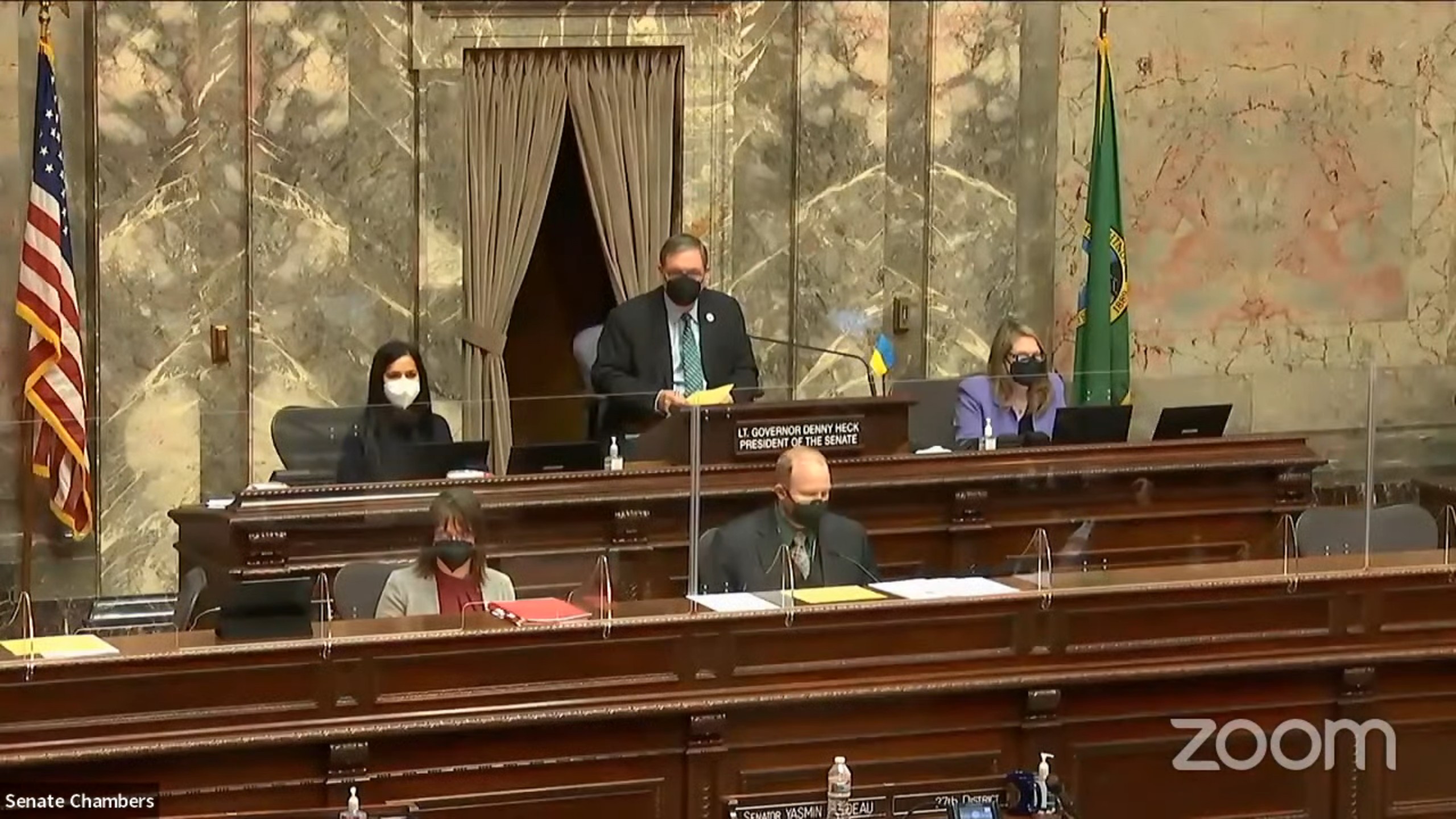A much-needed, long overdue initiative reform bill cleared the Washington State Senate this evening and is headed back to the House of Representatives for further consideration, in a huge victory for ballot sense and ballot transparency.
By a vote of 26 to 22, the Senate approved House Bill 1876, which requires fiscal impact disclosures to be appended to ballot titles that would alter the state’s finances. The disclosures would notify voters if a measure would increase or decrease funding for public services and then name the affected services.
If a proposed measure would impact the general fund, the statement would list the top three categories of state services supported by the general fund in the current biennial state budget.
Research publicly unveiled by NPI this evening during the floor debate on the bill shows that a whopping 82% of likely 2022 Washington voters favor adding fiscal impact disclosures to initiatives. Enthusiastic support among the voting public transcends party lines, ideological lines, and regional divisions.
As with the House vote several weeks ago, Democrats supplied all of the votes to pass HB 1876, with every Republican voting no. The roll call was as follows:
Roll Call
HB 1876
Ballot measures/impact discl
3rd Reading & Final Passage as Amended by the Senate
3/2/2022Yeas: 26; Nays: 22; Excused: 1
Voting Yea: Senators Billig, Carlyle, Cleveland, Conway, Das, Dhingra, Frockt, Hasegawa, Hunt, Keiser, Kuderer, Liias, Lovelett, Lovick, Nguyen, Nobles, Pedersen, Randall, Rolfes, Saldaña, Salomon, Stanford, Trudeau, Van De Wege, Wellman, Wilson (Claire)
Voting Nay: Senators Braun, Brown, Dozier, Fortunato, Gildon, Hawkins, Holy, Honeyford, King, McCune, Mullet, Muzzall, Padden, Rivers, Schoesler, Sefzik, Sheldon, Short, Wagoner, Warnick, Wilson (Jeff) Wilson (Lynda)
Excused: Senator Robinson
Senator June Robinson, who recently lost her mother, was excused from the vote. (Our heartfelt condolences to Senator Robinson.)
Democratic Senator Mark Mullet (D‑5th District: Issaquah, Maple Valley, Snoqulamie) was the only Democrat to vote no on the bill. The remaining twenty-six Democratic senators all voted yea, led by Senators Sam Hunt and Patty Kuderer, the Chair and Vice Chair of the Senate State Government Committee.
Both Hunt and Kuderer delivered excellent floor speeches in support of the bill and in opposition to numerous Republican amendments to weaken it.
The Senate agreed to adopt one Republican amendment that removes language stating that the content of the fiscal impact disclosures isn’t subject to judicial review, and one Democratic amendment from Senator Hunt adjusting some dates, but otherwise, the bill was left unchanged.
Even after getting the bill amended to address one of their concerns, a plethora of Senate Republicans still rose to denounce the bill, including Phil Fortunato and top Senate Republican John Braun.
“This bill is an example of the Legislature not trusting the people,” grumbled Braun. “This bill is designed to provide only the information they need to reach the ‘right’ decision. This is not good government. We need trust the people.”
Actually, current statute (RCW 29A.72.050) is what has been designed to yield ballot titles that don’t fully and properly summarize the effects of the initiatives they’re supposed to impartially represent. Statewide initiatives are limited to thirty word concise descriptions, no matter how complex the measure might be, and absurdly, there is no requirement that fiscal impacts be mentioned at all.
As a consequence, it’s possible for bad actors like Tim Eyman to go ballot title shopping and obtain manipulative, slanted, and prejudicial official descriptions of proposed initiatives with huge ramifications for the state’s finances.
By opposing this bill, it’s Republicans who are not trusting the people. They don’t want voters to be put on alert that a measure would have a fiscal impact, even though such notifications have long been a standard practice in the Legislature and are a standard aspect of local propositions like levies.
We want to be able to continue to run statewide tax-slashing measures while hiding the consequences from the official descriptions that appear on the ballot would not have made a very good argument for voting no on HB 1876, so Republicans resorted to their favorite defense mechanism of projection, accusing Democrats of holding the position that they themselves hold.
Prior to the debate on HB 1876, and during it, Tim Eyman was furiously rallying his followers to send emails to senators telling them that HB 1876 is bad. Eyman has previously called the bill a “five alarm fire.” In recent days, he has taken to calling it an “eight alarm fire,” ramping up his hyperbole.
Eyman’s failure to defeat this bill is a huge victory for Washington voters. Although HB 1876 isn’t out of the Legislature yet, it is the first significant initiative reform bill in modern times to get a floor vote in both chambers of the Legislature. NPI thanks the House and Senate for their work so far on this pro-transparency, pro-voter legislation. Washingtonians will be very appreciative!


Tim Eyman’s days as an initiative snake oil salesman are gonna end.